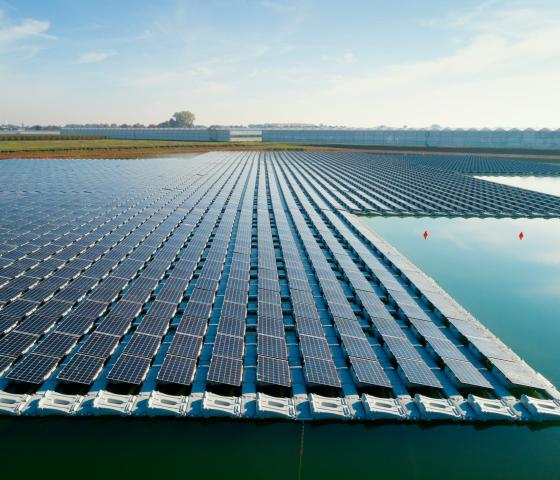
Water Audit for Industries
Efficiency and savings in industrial water use
Audit helps identify inefficiencies and cost savings in direct water consumption
The efficient use of water is one of the main objectives for companies in the industrial sector that, with good practice, can see economic savings and, consequently, social and environmental benefits reflected in their income statements.
An action plan will be generated that contemplates the efficiency opportunities identified and prioritises actions according to the risks and costs of each action.
Proceeds:
- 10% savings through optimisation actions, that is, without investments.
- AFRY proposes a water management system SGH adapted to the needs of each client
- AFRY provides from an independent point of view the optimal investments for each case.

AFRY's Water Audit includes
- Regulatory requirements.
- Analysis of consumption.
- Identification of inefficiencies.
- Analysis of the real cost of water at the point of use.
- Analysis of risks associated with water.
- Opportunities for improvement through an action plan.
- Identification of opportunities for reuse and rainwater use.

Frequently Asked Questions
- What is a water audit?
- Why is it important to perform a water audit?
- How much could inefficiencies in the water sector be reduced?
- What services does a water audit provide?
- What is Zero Discharge?
- How do we develop WWTP/ETAP optimisation?
- How do we raise awareness of sustainable water use?
It is a key tool to achieve the optimal level of hydroefficiency in the industry. Through our pioneering tool of "Analysis of the real value of water", we can measure and evaluate the use of water in industrial processes, so that you can know the real cost and optimise all the processes in which it is used to implement solutions.
Water auditing is essential to identify inefficiencies in direct water consumption.
In this sense, the latest Directive (EU) 2018/2002 of the European Parliament and of the Council of December 11, 2018 on energy efficiency warns as essential in this process the water sector, because it accounts for 3.5% of electricity consumption in the European Union. At the same time, the energy sector is the largest consumer of water, with a consumption share of around 45%.
In this way, the European Parliament establishes as a key element in efficiency and energy saving, the improvement in water management through the use of intelligent technologies and processes.
That is why companies like AFRY have the important task of identifying opportunities for industrial savings globally.
The reform of the water sector could generate savings of more than 13,000 million euros over a period of eight years, since 2,500 million euros of savings would be associated with the elimination of inefficient consumption by the industry. The rest would correspond to the reduction of costs in water losses in the integral cycle and in maintenance processes.
Through the water audits carried out by AFRY, opportunities are detected to reduce consumption, waste and optimise processes, so that companies can achieve 10% water savings in their activity without any additional investment.
- Verify if the company complies with the international standard ISO 14046:2014 to create sustainable water management.
- Implementation of energy savings throughout the water cycle.
- Optimisation of those water-consuming equipment.
- Improvement of processes and productivity: consumption management.
- Reduction of the use of drinking water.
- Studies of new water sources.
- Zero discharge.
- WWTP/ETAP improvement study.
- Monitoring: Personalised online access to water consumption data and associated costs.
It is about the recovery by industries of quality water through the rationalisation of their resources. The concept is part of the strategy of the circular economy model with which the reuse of water is key to report significant monetary savings.
This concept is based on the use of techniques and processes that make it possible to reuse wastewater to minimise the consumption of water supply, and reduce the amount of discharge water.
In this way, AFRY, through its analysis, helps companies so that they can obtain reused water from other processes or recycled water through technologies that ensure total quality.
With the implementation of the zero discharge system, your company will reduce its environmental impact and achieve the objectives of CSR (Corporate Social Responsibility).
From AFRY we analyse the feasibility of reusing the discharge water from the Wastewater Treatment Plants, always prioritising natural treatments mainly, since they are more sustainable treatment options and lower cost.
We promote the acquisition of knowledge through training courses focused on water resources management, according to sustainability criteria.
At AFRY we champion a new water culture, in which incorporating water sustainability into our environment can make a massive contribution to addressing all the problems that exist of water scarcity.
Contact us

Interested in our offering? Contact us!
